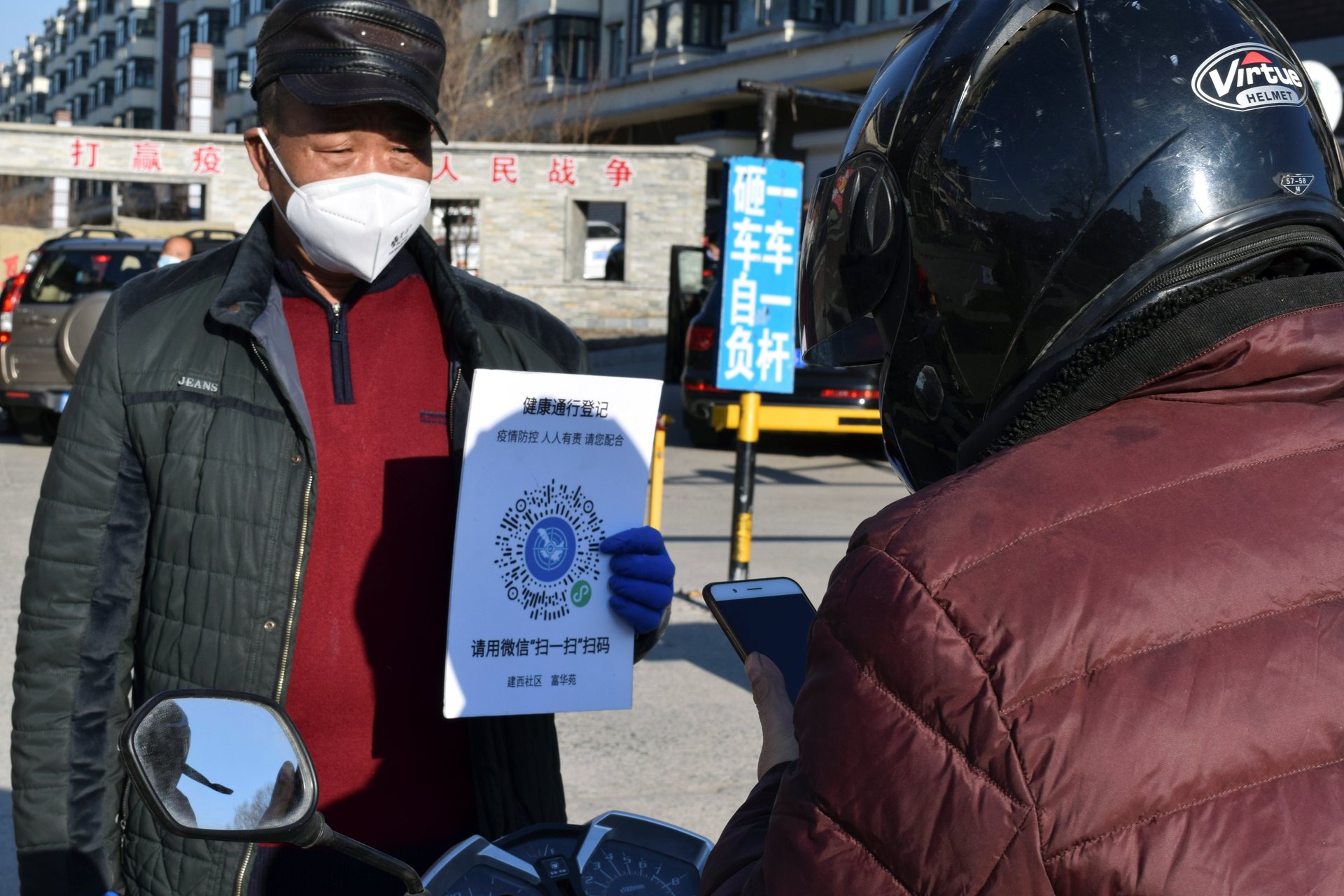A Chinese province may be targeting people through its covid app
Chinese citizens are worried that Health Code, a government track-and-trace app for covid prevention, is becoming a surveillance tool for authorities to crush dissent.


Chinese citizens are worried that Health Code, a government track-and-trace app for covid prevention, is becoming a surveillance tool for authorities to crush dissent.
First adopted in early 2020, Health Code flashes the colors red, yellow, and green to indicate a person’s level of exposure to covid-19, based on their travel history and other information. Each city and province has its own version of the app, and it has become a fixture in citizens’ daily lives. Anyone with a red status, representing the highest risk of contracting the disease, is prohibited from using public transport or traveling across the country. In some cases, a red code can even lead to quarantine.
While Health Code has helped China fight the pandemic, it has also raised concerns from human rights groups about the potential abuse of the app They fear that the government uses Health Code to restrict the movements of dissidents, or of anyone they see as a troublemaker—an understandable anxiety, given China’s track record of stifling dissent by using tools like the messaging app WeChat. More broadly, institutions including the International Bar Association have long voiced concerns about Beijing’s use of the pandemic as an excuse to enhance its already tight control on its critics.
China’s covid app is turning red at suspicious moments
Previously, worries about authorities’ potential abuse of covid control measures applied mainly to Chinese dissidents. But a recent incident has, for the first time, alerted other citizens to their own risks. This week, the Chinese state media web site Sixth Tone laid out an example of how some local authorities may have controlled the movement of people through the app.
In the central Chinese province of Henan, at least four local banks have allegedly frozen tens of billions of yuan in deposits since mid-April, citing system upgrades. China’s banking watchdog and central bank have said they have been paying attention to the issue, and have ordered Henan authorities to look into it. Nevertheless, many disgruntled depositors have been travelling across the country to Henan to demand their money back.
Roughly a dozen depositors found that their health codes turned red after they arrived in Zhengzhou, the capital of Henan, according to Sixth Tone. Reuters found other depositors who said their codes turned red after they registered their plans to travel to the city online, a covid procedure many Chinese cities follow. Yesterday, a depositor whose code had turned red after he arrived in Zhengzhou found it became green again as soon as he left the city, according to the Chinese finance outlet Yicai.
It is unclear why the code changed, or whether it was always changed by Henan authorities. Screenshots provided by a depositor whose code turned red show that the change was instigated by the municipality of Zhengzhou, according to the news website Shangguan News. Many Chinese state media, including Banyuetan, a magazine under the state news agency Xinhua, have condemned the potential misuse of the app by local authorities. “Health Code is a result of individuals’ sacrifice of rights for their own and the public’s health, and can only be used for covid prevention,” said a signed opinion piece in Banyuetan. “No one or no department has a right to breach such a role of Health Code and use it for other purposes.”
Hu Xijin, a former editor of the nationalistic state tabloid Global Times and a high-profile commentator in China, said on his Weibo account that no local government should tamper with Health Code to “prohibit the flow of certain groups” for purposes beyond covid control. “To do so will undermine the credibility of Health Code and the public support for covid control measures,” he wrote.
On Weibo, many users feared that other local governments would use the Henan case as an example to silence people. “Now I understand why foreign countries don’t use Health Code,” one wrote. “Once you give away your rights, you can’t take it back,” said another.